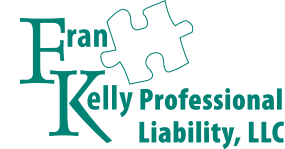- What is E&O insurance?
- E&O stands for Errors & Omissions insurance. It is also commonly referred to as Professional Liability or Malpractice Insurance. The purpose of this insurance is to cover you for claims arising as a result of an unintentional wrongful act committed by you and/or your employees during the policy period or subsequent to the retroactive date on the policy.
- What is my retro date and how does it impact my coverage?
- The retroactive date on the declarations page of your policy is the date you first purchased the claims-made policy and after which have maintained continuous coverage. A gap in coverage could cause you to lose your retro date. When your retro date is lost or advanced to a later date, you are no longer covered for services performed prior to your new retro date. Your policy will only respond to claims-made during the policy period (or extended reporting period, if applicable) for services performed on or after the retroactive date listed on the declarations page and before the end of the policy period.
- What constitutes a claim?
- Includes but is not limited to:
- A written demand seeking damages for a wrongful act allegedly committed by you.
- Any suit seeking damages for a wrongful act allegedly committed by you.
- Any circumstance that could reasonably give rise to a future claim. These circumstances must be reported in writing to the carrier as soon as possible. You must beware of the prior knowledge exclusion in the policy.
- A written request asking the insured to toll or waive the statute of limitations, relating to a potential claim.
- Includes but is not limited to:
- What is an extended reporting period (aka tail)? When would I purchase it?
- An extended reporting period can be purchased for additional premium at the end of a policy period to extend the amount of time you are able to report claims under a certain policy. The claims must have arisen from services performed after the retroactive date and prior to the end of the policy period. Extended reporting periods are most often purchased when a company is going out of business. They are also purchased when the replacement policy has an advanced retro date that will not respond to future claims arising from services performed prior to the beginning of the new policy period. This is most often the case with a high risk or harder to place risk which may have encountered either claim frequency, claim severity or both.
- To whom do I report a claim that arose from a service provided during a previous policy period?
- As long as you have maintained your retroactive date, all claims should be reported directly to the carrier under the policy in force at the time the claim is made (unless an extended reporting period applies). If you have purchased an extended reporting period please consult your agent on which carrier the claim should be reported to.
- When do I need to report a claim?
- A claim should be reported as soon as you become aware of any circumstances which may reasonably lead to a claim. If you fail to report a circumstance that could have led to a claim as soon as you become aware of said circumstance, the carrier may have the right to decline your claim under the prior knowledge exclusion.
- What is the prior knowledge exclusion?
- Most carriers exclude coverage for any prior litigation, wrongful acts, or circumstances that occurred prior to the policy inception and subsequent to the retro date which you were aware of or could have reasonably foreseen would lead to a claim.
- What about my independent contractors? Are they covered? Am I covered for my liability for their mistakes?
- Every carrier has different policy language; hence, each policy responds differently to your liability for acts of independent contractors. The most common ways policies will respond to independent contractors:
- Cover them as insureds under your policy.
- Exclude them completely.
- Have you warrant that the independent contractor maintains their own certain limits of liability insurance. If they fail to maintain those limits, your coverage may be impacted.
- Cover you for your vicarious liability without extending coverage to the independent contractors themselves.
- Talk to your agent about how you would prefer your policy to respond to situations involving independent contractors.
- Every carrier has different policy language; hence, each policy responds differently to your liability for acts of independent contractors. The most common ways policies will respond to independent contractors:
- Does my E&O policy cover me for privacy/security breaches?
- Very few E&O policies offer any coverage for liability due to a privacy or security breach. Those that do, often provide very restricted coverage with low limits of liability. Some E&O policies now have privacy/security breach exclusions. We highly recommend a stand alone policy to respond to this type of growing exposure.
- Do I need fidelity coverage? If so, why?
- If you have employees – yes, you need fidelity coverage. Even the most trusted employee can end up stealing money or property from your office. The State of Pennsylvania requires title agents to carry a minimum of $150,000 of employee theft coverage. We recommend a broader policy to respond to 3rd party crime as well as a higher coverage limit.
FREQUENTLY ASKED QUESTIONSdesigner2020-08-18T10:38:59-04:00
